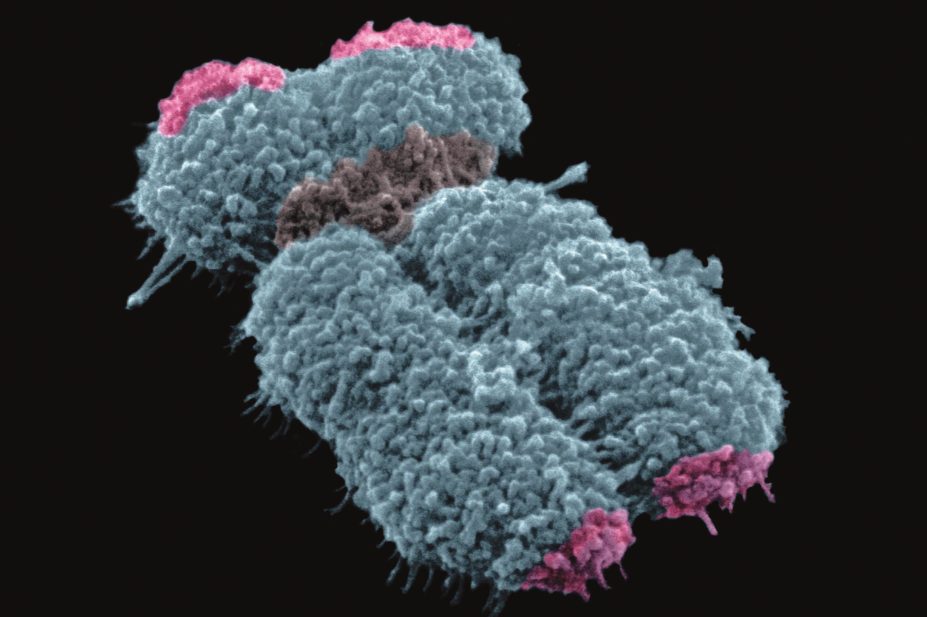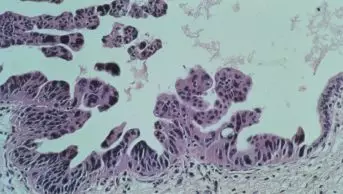
Science Photo Library
Around 5% of human cancers use telomerase and the alternative lengthening of telomeres (ALT) pathway in order to overcome the usual process of ageing and cell death. This survival mechanism is being targeted as a potential treatment for vulnerable tumours.
Writing in Science (2015;347:273–277)[1]
, researchers led by Rachel Litman Flynn, from Harvard Medical School, reveal that the chromatin remodelling protein ATRX plays a critical role in regulating the ALT pathway. They also showed that inhibiting the protein kinase ATR induced cell death in vitro in ALT-positive osteosarcoma and glioblastoma cells.
This effect was highly selective for cancers that rely on ALT for survival, suggesting that ATR inhibition may be a useful treatment approach in ALT-positive cancers.


